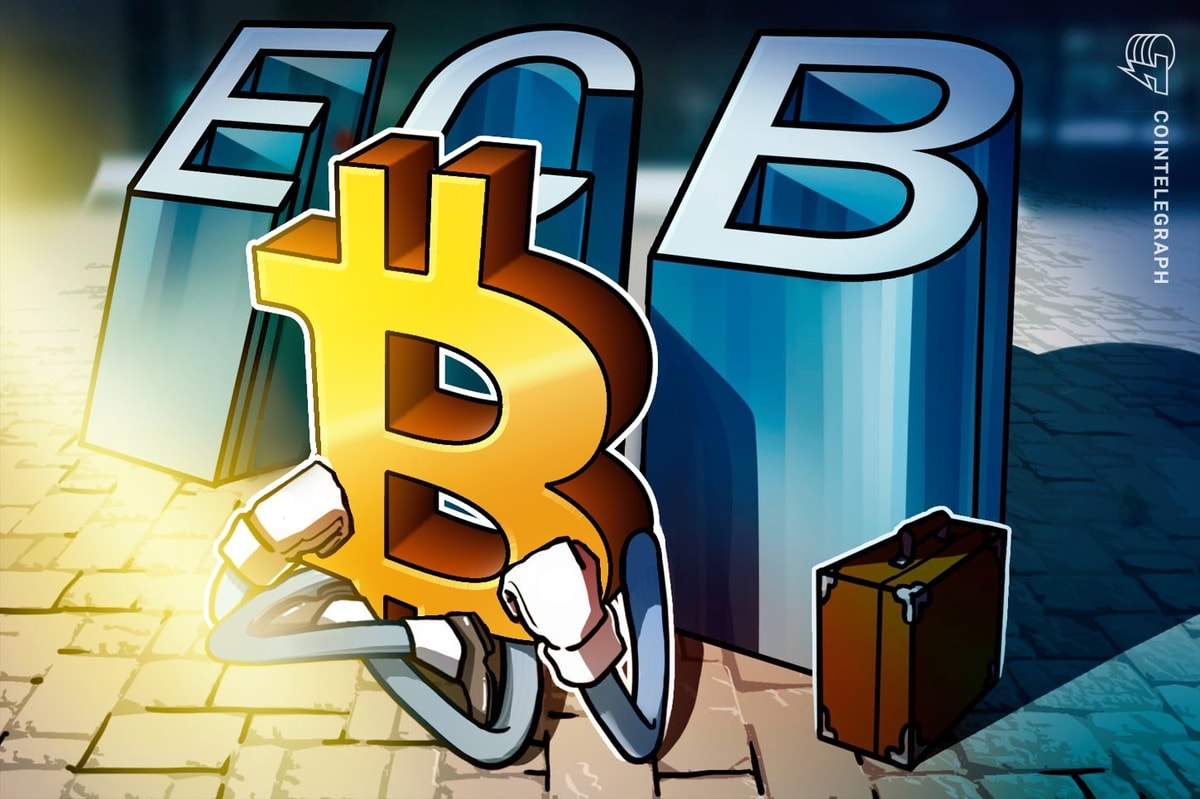An adviser to the European Central Bank (ECB) has reiterated the bank’s negative stance on Bitcoin as the US explores the creation of a strategic Bitcoin reserve.
“Nation-state Bitcoin reserves are a risky idea,” ECB adviser Jürgen Schaaf told Cointelegraph while addressing the question of BTC adoption by global central banks.
Schaaf argued that while it makes sense for governments to maintain reserves of energy sources like oil and gas, there is “no real economic need for Bitcoin” because the cryptocurrency has “no real economic necessity or relevant usage.”
Schaaf’s position aligns with recent remarks by ECB president Christine Lagarde, who expressed confidence that Bitcoin (BTC) would not enter the reserves of central banks across Europe in late January.
Bitcoin reserves would fuel speculation, not stability
Schaaf pushed back on the idea that the ECB should add BTC into its reserves. He said different types of strategic reserves exist, such as the stockpiling of raw materials, which can be released during crises to avoid higher prices for imports.
“Sovereign wealth funds, which invest national savings in countries with structural balance-of-payments surpluses and low debt — often due to high endowment with scarce raw materials — is another example,” the ECB adviser stated.
“However, in the US and Europe, reducing public debt takes precedence over profitable investments,” he added.
According to Schaaf, there are a number of things that make Bitcoin an “unsuitable asset for central banks,” including “extreme volatility, illicit use and susceptibility to manipulation.” He added:
“Adding Bitcoin to the ECB reserves would not stabilize the single currency. It would merely fuel speculation and wealth redistribution.”
Diversified crypto asset reserves are out of the question
Schaaf rejected the idea of central banks holding not just Bitcoin but also other cryptocurrencies as reserve assets.
“Adding multiple cryptocurrencies would only amplify these issues, increasing volatility and exposure to speculative assets with often no fundamental economic utility,” Schaaf said, adding:
“Whether Bitcoin alone or a mix of digital assets, the risks remain high, and the economic justification is weak.”
Schaaf’s remarks came amid the crypto markets facing a massive wave of volatility, with analysts recording $1.5 billion in crypto liquidations over the past 24 hours.
Related: Metaplanet, El Salvador stack Bitcoin as BTC slides 5% in 10 hours
Source: Miles Deutscher
Bitcoin, which peaked above $106,000 on Dec. 17, 2024, has plummeted 7% in the past 24 hours, dropping below $88,000 on Feb. 25 for the first time since mid-November, according to CoinGecko data.
Could Bitcoin help countries address national debts?
While Schaaf sees public debt reduction as separate from potential reserve investments, some Bitcoin advocates argue that BTC could help governments manage their financial burdens.
In December, asset management firm VanEck estimated that the US could reduce its national debt by 35% in the next 24 years if it created a reserve of 1 million BTC.
The estimation came in line with a bill proposed by Senator Cynthia Lummis, who has been pushing state Bitcoin adoption as a tool to address trillions in US debt for years.
On the other hand, some skeptics have questioned whether the Bitcoin accumulation by the US government could help fix the $35-trillion debt that has been rising since the 1980s.
Magazine: Trump’s crypto ventures raise conflict of interest, insider trading questions








